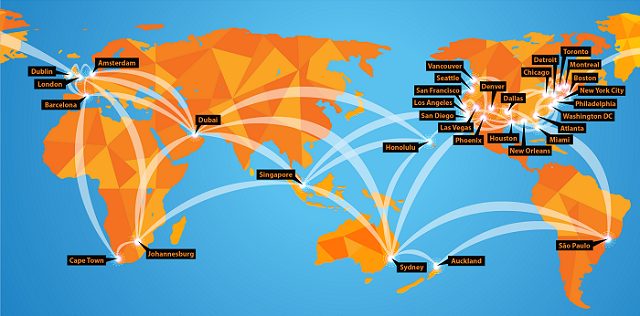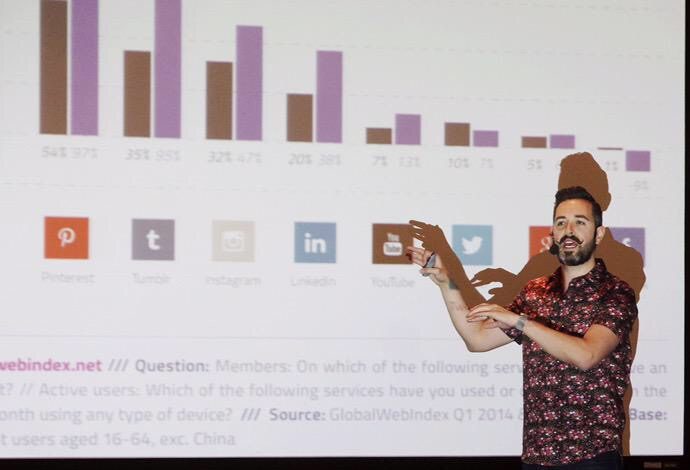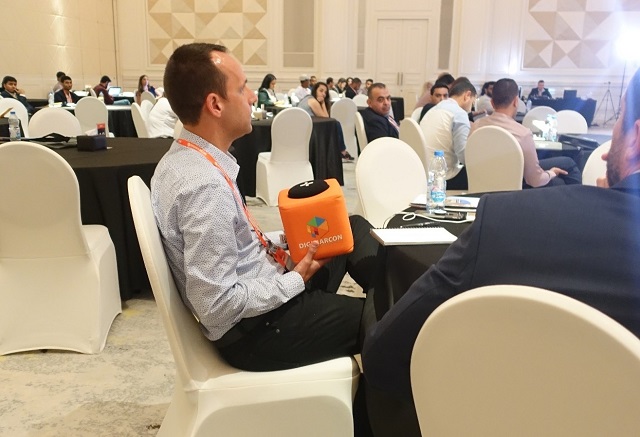7 Emerging Technologies in SEO and Their Applications

As you can see, if I wanted to write an article on this topic, I can use some of these suggestions as an outline for my post. With these, I can focus instead on researching the individual sub-topics.
Here’s another example of some website taglines that I created for Moz by entering the brand name and a brief description of “The Ultimate SEO tool you can trust” into the tool:

If you were starting a new brand as an SEO, you can use NLG tools such as this, to discover awesome taglines to use for your brand.
3. TF*IDF
TF*IDF stands for “Term Frequency times Inverse Document Frequency”. This measures how you use a term on a particular page and how it compares to a collection of pages for that specific keyword.
While TF*IDF might seem like a measurement of keyword density, it’s actually measuring how important a keyword phrase is by comparing it to that keyword’s frequency in a large set of documents.
Although it’s not yet clear if Google uses TF*IDF in its algorithm, it’s a good practice to incorporate it into your
Posted by AbdulGaniy_Shehu
SEO is a dynamic industry. What worked some weeks ago might not work again right now.
As an SEO professional, you need to know the latest trends and emerging technologies, to keep up with the ever-changing demand of the industry. That way, you can stay on top of your game and become more efficient in your business.
In this post, I’ll share with you seven emerging technologies in the SEO industry and how they impact your work as an SEO expert. Finally, I’ll show you how to apply them in your business for optimal results.
If you want to scale your SEO processes in 2021 and beyond, you should watch out for these technologies, and start implementing them in your business right away.
1. Natural Language Processing (NLP)
In December 2019, Google officially rolled out the Bidirectional Encoder Representations from Transformers (BERT) algorithm update worldwide. This update brought NLP to the fore, and it’s been a technology to watch out for in the SEO industry since.
With NLP, Google can understand what a word in a sentence means by looking at its context.
This means that Google no longer relies on the specific words or phrases that users are searching for to provide them with the right answers. Rather, they’re looking at the intent behind each search.
Here’s an example of how BERT (an offshoot of NLP), affects a search query according to Google.
Before NLP, if someone searches for the query “2019 brazil traveler to usa need a visa”, Google thinks that this is an informational query to confirm if a U.S citizen can travel to Brazil without a visa. Hence, it shows a Washington Post article that answers the question on top of the SERPs.
As you can see, the context behind this search is someone wanting to travel to the USA from Brazil who needs a visa. While it was difficult for Google to figure out what these kinds of queries meant in the past, with BERT, the algorithm understands the context behind each search and provides the user with the right information.
How to utilize NLP in your SEO processes
With NLP, informational content is more crucial than ever. However, optimizing for BERT isn’t something you can do as an SEO.
Rather, you should focus on creating high-quality content that answers search queries accurately. When you do, you’ll definitely rank well.
This Moz article shows you how to write amazing pieces of content for search engines and people.
2. Natural Language Generation (NLG) for short-form content
With NLG, SEOs can now produce meaningful phrases and sentences just like a natural language, but using technology.
Instead of battling with writers’ block and spending hours thinking of what to write, NLG removes that burden through automation. And if you’re a content creator, this helps you focus just on polishing the content and making it read better.
While there are a lot of use cases for NLG, at the moment, it’s better used to write short-form content such as headlines, product descriptions, meeting memos, and so on.
How …read more
Source:: Moz Blog





























